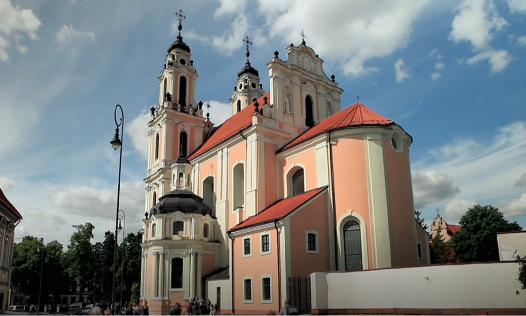Payment is being processed. Please do not refresh or close this page until your payment is complete.
 Book an Appointment
Book an Appointment

Currently, nearly 8,000 foreign nationals hold temporary residence permits in Lithuania, primarily from India, Belarus, and Pakistan, obtained for study purposes.
According to Jolita Gestautaitė from the Migration Department, there are around 1,400 Indian students, 959 from Belarus, and 709 from Pakistan currently studying in Lithuania, Schengen.News reports.
Indian Students Top List for Study-Based Residence Permits
As LRT explains, so far this year, Indian citizens have received the highest number of study-based temporary residence permits, totalling 668, followed by 552 permits issued to Pakistani nationals and 355 to students from Bangladesh.
In 2024, 108 Belarusians secured temporary residence permits for their studies in Lithuania. Students can apply for a national visa or a temporary residence permit to study there. National visas are typically granted for those participating in exchange programs, allowing stays of up to one year.
On the other hand, temporary residence permits are available for non-EU students enrolled in long-term study programs. These permits are valid for two years for bachelor’s and master’s students, while doctoral candidates receive three-year permits.
Additionally, the Migration Department states that international students enrolled in master’s or doctoral programs can bring their family members to Lithuania. So far this year, Lithuania has issued over 3,000 temporary residence permits for studies, compared to 4,400 issued in the previous year.
Tightened Immigration Policies Lead to Increased Denials for Foreign Nationals in Lithuania
In light of stricter migration control measures, Lithuania has seen an increase in the number of individuals denied the right to live and work there.
Data by the Lithuanian Ministry of Interior shows that nearly 36,000 foreigners have faced rejection for work and residency this year. This rise follows amendments to the Law on the Legal Status of Foreigners, which took effect on July 1, along with other stringent measures.
Approximately 116,000 foreigners are employed in Lithuania, and about 220,000 reside in the country, including Ukrainian refugees. One significant step Lithuania took is the regulation of incoming workers through external service providers, which has reduced the number of such providers from 34 to 30.
Additionally, the rules for residence permits have been tightened. In 2024, Lithuania processed a total of 67,175 residence permit applications, with 20,410 of those being rejected due to various deficiencies.
Lithuania has also strengthened its oversight of local companies by banning 45 firms from recruiting foreign workers. This measure aims to enhance control over the hiring process and ensure compliance with immigration regulations.
Source: https://schengen.news/nearly-8000-foreign-nationals-hold-residence-permits-for-study-purposes-in-lithuania/